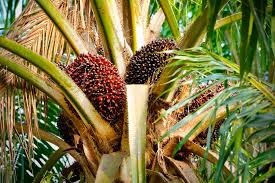The Sustainable Trade Initiative (IDH) from the Netherlands, a non-government organisation in collaboration with the Edo State Oil Palm Programme (ESOPP) is targeting to support 10,500 smallholder oil palm farmers under its National Initiatives for sustainable and Climate- Smart Oil Palm NISCOPS 2 in Edo State.
IDH Country Director in Nigeria, Prof Eniola Fabusoru, disclosed this in Benin City recently during the sensitization of 46 farmers drawn from communities farming in Sakponba forest on National Initiatives for sustainable and Climate- Smart Oil Palm (NISCOPS), for small holders funded by the government of Netherlands and the United Kingdom.
He said the workshop is a sensitization programme for communities, private sector as well as government agencies that are working in Sakponba forest scheme in Orhionmwon Local Government of the state.
“IDH in his NISCOPS 2 programme is planning to work in Sakoponba forest which is one of the major landscapes in Edo state. Our aim is to promote sustainability in oil palm production, linking smallholders farmers, integrating them in the supply chain of major oil palm processors such as Presco and others that are doing oil palm on a large scale,” Prof. Fabusoru said.
He explained that IDH’s aim was also to improve the productivity of smallholder farmers in oil palm and as well as protecting the forest landscape.
He added, “We are targeting 10,500 smallholder farmers; we are here to discuss with the communities and know their issues and problems and to work with them and also known among the partners who have the capability or solve the issues that have been raised and how to leverage the opportunity everybody brings to achieve our goals.
“That is what we started today and most importantly we want the people to know about the two studies that will be conducted, one on the social economy and the other on the environment.”
According to him, they are seeking the support of the communities so that when the consultants go to the field, they can have maximum cooperation, adding that it is from these studies they would design the intervention that will be of immense benefit to the smallholder farmers and the community at large.
“Primarily, we hope to achieve improved livelihood of the small holders in the Sakponba forest as well as improving oil palm production and other economic activities that are agric related.
“So, we want to achieve improved livelihood through income, improved forest management through practice such that productivity will improve without further degradation of the forest. We want to achieve a balance of the social economy and environment.
“IDH will conduct its due diligence process and ensure that any community or partners we are working with do not take undue advantage of the smallholder farmers or engage in all kinds of mischievous practices that will lead to the disadvantage of the people.
“To achieve this, we will be working closely with Edo State Oil Palm Programme (ESOPP) which is the regulatory agency of the government in the project. We are working with them to see how they can establish strong police that favours the community.
“We are also bringing our incentives to the private sector to partner with them and integrate the small holder farmers into their value chain, and help to improve their productivity. We will change any kind of malpractices or issues by the private sector that may affect the livelihood of the smallholder farmers.
He however called on the communities to cooperate with IDH, urging them to see the partnership in terms of business by not looking at today but the future and protect the forest landscape for the benefit of the future
On his part, Churchill Oboh, Team lead, ESOPP, said the programme was to ensure that oil palm is produced sustainably by our partners.
“IDH, which is our development partner, is collaborating with ESOPP to ensure that the productivity of smallholder farmers that exist within the Sakponba landscape is increased. It is also to ensure that their livelihood is sustained as reasonably practicable,” Oboh said.
“For us, it is a welcome development and we are looking for partners of this kind because the government alone can’t do it,” he added.
He said the state government needs NGOs and development partners that can support farmers in ensuring that production is in line with global best practices and the livelihood of the smallholder farmers is improved and sustained.
“The plan of IDH under the NISCOPS 2 programme will be beneficial to the state and the small holder farmers,” he said.


